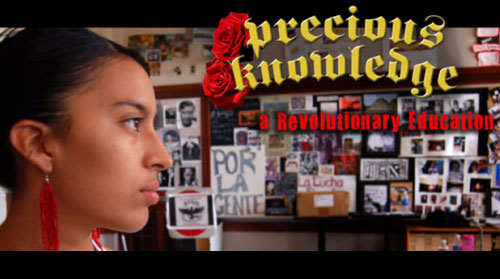Precious Knowledge; Shalaby - Troublemakers, Kohn - good classroom chart
One of the most impactful sources from this class would have to be the Precious Knowledge documentary. Being able to hear students stories and how the feel about the school system was very saddening to hear that they felt no support. Being able to see how much the Ethnic studies classes gave them a reason to want to succeed and learn about their culture was a large point that I took away from it, and helped to emphasize the importance of making sure all students are able to see themselves and connect to stories and lessons in the classroom. Troublemakers was another impactful reading, being able to put a new perspective on why certain kids act out and the way that the school system pushes them out rather than reflecting on why it is occurring. It shined a new light on being able to have the patience and sympathy that is needed to truly understand your students and create meaningful relationships with them. Finally, I thought that Kohn provided a brief but also very effective reading, showing how certain dynamics and setups can completely change the way that you connect with your students. It has made me take note on the possibilities of being able to set up my own classroom in the future as well as providing useful tips on what to steer away from when managing a room.

I also thought the documentary was very insightful and important.
ReplyDelete